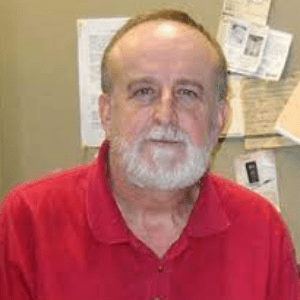Role of Intracranial Pressure (ICP) Conference
Home/ Scientific Sessions / Role of Intracranial Pressure (ICP) Conference
The role of Intracranial pressure (ICP) explains how the pressure inside the skull affects the health of the brain. This pressure came in millimeters of mercury (mmhg) – typically range between 7 and 15 mmhg in healthy adults. The skull is a certain place with brain tissue, blood and cerebrospinal fluid; If someone increases, the pressure increases, as explained by the Monro-kellie theory. The elevated ICP can reduce blood flow, causing brain tissue change, or risk herniation – early detection and treatment makes the treatment significant. Common symptoms include headaches, nausea, vision changes and altered consciousness. Monitoring of ICP – through invasive methods like intraventricular catheters or non-invasive approaches – for treatment and improves results in conditions such as painful brain injury, stroke or brain tumors. Understanding the ICP is important to protect the brain function and prevent life- threatening complications.
Related Sessions
1.Alzheimers and Parkinsons Diseases
2.Neuroimmunology and Neurological Infections
3 - Cognitive Neuroscience and Psychology
4 - Neuroinformatics and Computational Neuroscience
5 - Neurological Disorders
6 - Neurobiology
7 - Molecular Neuroscience
8 - Pediatric Neurology
9 - Clinical Neurology
10 - Translational Neurology
11 - Neurogenetics
12 - Neurodegenerative Diseases
13 - Neuropsychiatry
14 - Neuroscience Research
15 - Neuropharmacology and Novel Drug Development
16 - Neurological Interventions and Surgery
17 - Artificial Intelligence in Neurology and Neurosurgery
18 - Neuro-ophthalmology and Auditory Neurology
19 - Aging and Neurology
20 - Brain Tumors and Neuro-Oncology
21 - Stroke Diagnosis and Management
22 - Epilepsy and Seizure Disorders
23 - Psychiatric and Behavioral Disorders
24 - Neurovascular Disorders
25 - Neurology and Systemic Disorders
26 - Neurodevelopmental Disorders
27 - Cognitive and Memory Disorders
28 - Neuroinflammation and Brain Disorders
29 - Neurological Rehabilitation
31 - Trauma and Neurocritical Care
33 - Cellular and Systems Neuroscience
35 - Advances in Neuroimaging Techniques
37 - Rare and Complex Brain Disorders
30 - Global Challenges and Public Health
32 - Neurotoxicology
34 - Behavioral Neuroscience and Social Neuroscience
36 - Addiction and Mental Health
Related Sessions
1.Alzheimers and Parkinsons Diseases
2.Neuroimmunology and Neurological Infections
3 - Cognitive Neuroscience and Psychology
4 - Neuroinformatics and Computational Neuroscience
5 - Neurological Disorders
6 - Neurobiology
7 - Molecular Neuroscience
8 - Pediatric Neurology
9 - Clinical Neurology
10 - Translational Neurology
11 - Neurogenetics
12 - Neurodegenerative Diseases
13 - Neuropsychiatry
14 - Neuroscience Research
15 - Neuropharmacology and Novel Drug Development
16 - Neurological Interventions and Surgery
17 - Artificial Intelligence in Neurology and Neurosurgery
18 - Neuro-ophthalmology and Auditory Neurology
19 - Aging and Neurology
20 - Brain Tumors and Neuro-Oncology
21 - Stroke Diagnosis and Management
22 - Epilepsy and Seizure Disorders
23 - Psychiatric and Behavioral Disorders
24 - Neurovascular Disorders
25 - Neurology and Systemic Disorders
26 - Neurodevelopmental Disorders
27 - Cognitive and Memory Disorders
28 - Neuroinflammation and Brain Disorders
29 - Neurological Rehabilitation
31 - Trauma and Neurocritical Care
33 - Cellular and Systems Neuroscience
35 - Advances in Neuroimaging Techniques
37 - Rare and Complex Brain Disorders
30 - Global Challenges and Public Health
32 - Neurotoxicology
34 - Behavioral Neuroscience and Social Neuroscience
36 - Addiction and Mental Health
Scientific Program
Keynote Speaker - Dr. Zhenhuan LIU (Oral Presentation - In-Person)
Nanhai Maternity and Children Hospital Affiliated to Guangzhou University of Chinese Medicine, China
Keynote Speaker - Dr. Magda Tsolaki - Oral Presentation (Virtual)
Emeritus Professor of Neurology, Aristotle Univesrsity of Thessaloniki, Makedonia, Greece, Chair of the Greek Federation of Alzheimer’s Disease
Keynote Speaker - Dr. Tatsuro Mutoh, MD, PhD, FAAN - Oral Presentation (In-Person)
Department of Neurology, Fujita Health University Hospital, Toyoake, Aichi, Japan
Scientific Program
Keynote Speaker - Dr. Zhenhuan LIU (Oral Presentation - In-Person)
Nanhai Maternity and Children Hospital Affiliated to Guangzhou University of Chinese Medicine, China
Keynote Speaker - Dr. Magda Tsolaki - Oral Presentation (Virtual)
Emeritus Professor of Neurology, Aristotle Univesrsity of Thessaloniki, Makedonia, Greece, Chair of the Greek Federation of Alzheimer’s Disease
Keynote Speaker - Dr. Tatsuro Mutoh, MD, PhD, FAAN - Oral Presentation (In-Person)
Department of Neurology, Fujita Health University Hospital, Toyoake, Aichi, Japan
Committee Members

Kenneth B Storey
Carleton University, Canada

Kindy Mark
University of South Florida, United

Thomas J Webster
Interstellar Therapeutics, United States
Tags




